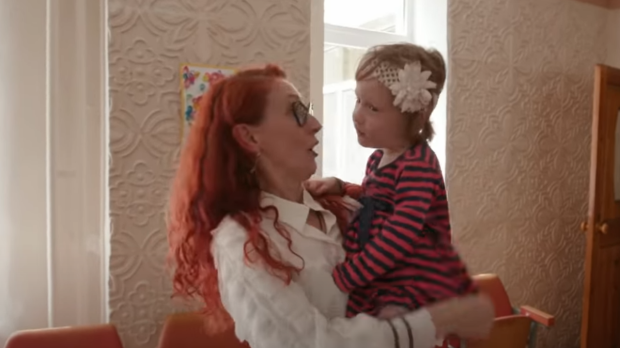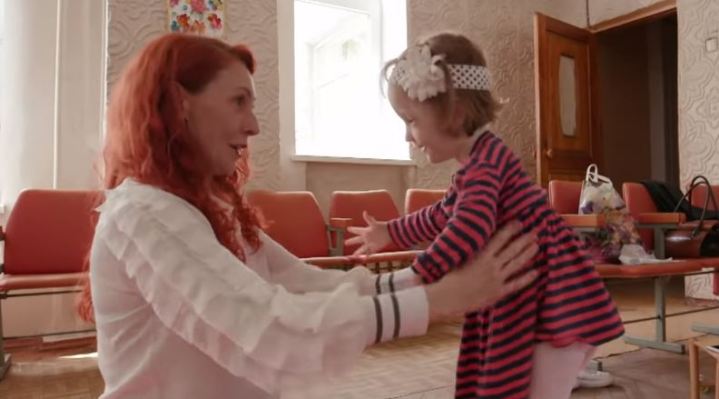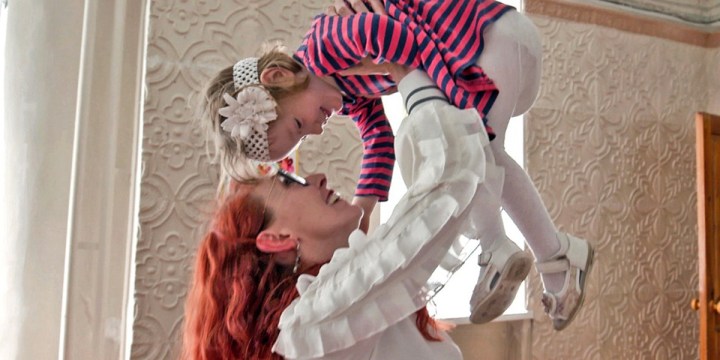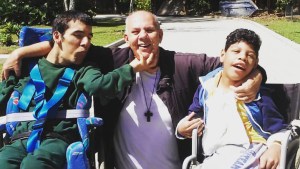Bridget is a 6-year-old Ukrainian girl, severely disabled from complications in the womb and a premature birth. Her twin brother died at birth—and a third child was aborted.
These three lives were conceived through surrogacy. Two lives were prematurely extinguished, and the third—who survived—was rejected by the parents who spent a lot of money trying to obtain a child. Their case is a controversial one: it emerged via the reporting of an Australian journalist who opened a Pandora’s box on the hidden world of the so-called “failed products” of surrogacy.
Victims of war
The Donbas war front has been simmering for years, but there are also other conflicts that cause casualties even without the deployment of tanks and drones.
Even if there aren’t two obvious contenders, you can certainly recognize a war by its victims. This is also true for surrogacy: you can use a thousand euphemisms, but the fact remains that there are victims left on the battleground. Victims like Bridget. She was born in Zaporizhzhya, a city unknown to much of the world before it became a key site for the Russian invasion because of the strategic role of the nuclear power plant located there.
Bridget’s rejection and acceptance
At the beginning of April, Der Spiegel International reported encouraging developments in the story: an American family had applied to adopt Bridget. They are Philip and Kristie Graves, parents of four children who live in Maryland. One of their daughters, originally from Armenia and born with spina bifida, transformed their lives and gave them the confidence to adopt a special needs child again.
Italian dailyIl Messaggero reports that the Graves learned about Bridget’s story through the website of Reece’s Rainbow, an American foundation dedicated to promoting the adoption of special needs children. There, they read her diagnosis: “Spastic paraplegia. An unspecified mental affliction. Club foot. A congenital malformation of the papilla. Undernourishment. Constipation.”
But they saw her face and knew she was their daughter. There were obstacles to bringing Bridget home to the United States, though. Il Messaggero reported that the Ukrainian authorities refused to recognize the renunciation of the first American couple, and at the same time the child is not a Ukrainian citizen. “Therefore she remained in the orphanage, under the threat of bombs.”
Bridget was not totally abandoned through those years, though. A nurse with bright copper-red hair named Marina Boyko helped her, and prepared Bridget’s new parents, filling them in “not only about her tastes but also about her needs, for example special glasses that no optometrist in Zaporizhzhya is able to make.”
Bokyo never planned to care for Bridget so long, but she didn’t turn away in the face of a newborn in need and has continued to accompany her. Der Spiegel reports:
Marina Boyko is the head nurse at the hospital where Bridget spent the first three years of her life. Since Bridget has been living in the children’s home, Boyko has been visiting her regularly. She buys her clothes, fruit, silver earrings, and before the Russian invasion, she took her to the best physical rehabilitation clinic in Ukraine on several occasions for dolphin therapy.
The American parents who paid handsomely to have a surrogate mother in Ukraine were told at Bridget’s birth that the baby had disability and other medical issues. They authorized doctors to stop treatment to provide the little girl a “merciful” death.
But little Bridget pulled through. And when Boyko repeatedly reached out to the couple who had spent about over $30,000 to have a daughter — to show them how far Bridget had come — they ignored the communication.
An all-inclusive love
Bridget’s life began according to a plot that was supposed to go in a certain direction: the perfect child at the right time. The script got complicated, and revealed the portraits of two kinds of people: those who allow themselves to be changed by the unexpected, and those who live sealed and enslaved to their dreams. Spiegel describes how Bridget came to be:
They chose the “All Inclusive Standard” package, which includes an egg donor from a “dynamic” database, an unlimited number of insemination attempts on the surrogate (the website reads, “We try until you have a baby”) and a superior hotel room. The package cost 29,900 euros. They did not want to meet the surrogate mother chosen by BioTexCom.
There is no lack of astonishing aspects to this story: shards of good in the midst of war. There are also some moving details about the biological mother, the one who carried Bridget in her womb.
She stayed with Bridget in the hospital for almost five months – in the period before the baby girl was transferred to Boyko’s station. She slept in the same room with Bridget, fed her and, according to the hospital records, bought her cortexin, nebufluxon, cotton, injections, and vitamin D. She called a priest and had Bridget baptized as “Maria.”
It was a truly maternal gesture. Sadly, her husband did not wish to welcome the child into their family, but God has his own ways and the Graves family just returned from Ukraine with Bridget in their arms.





